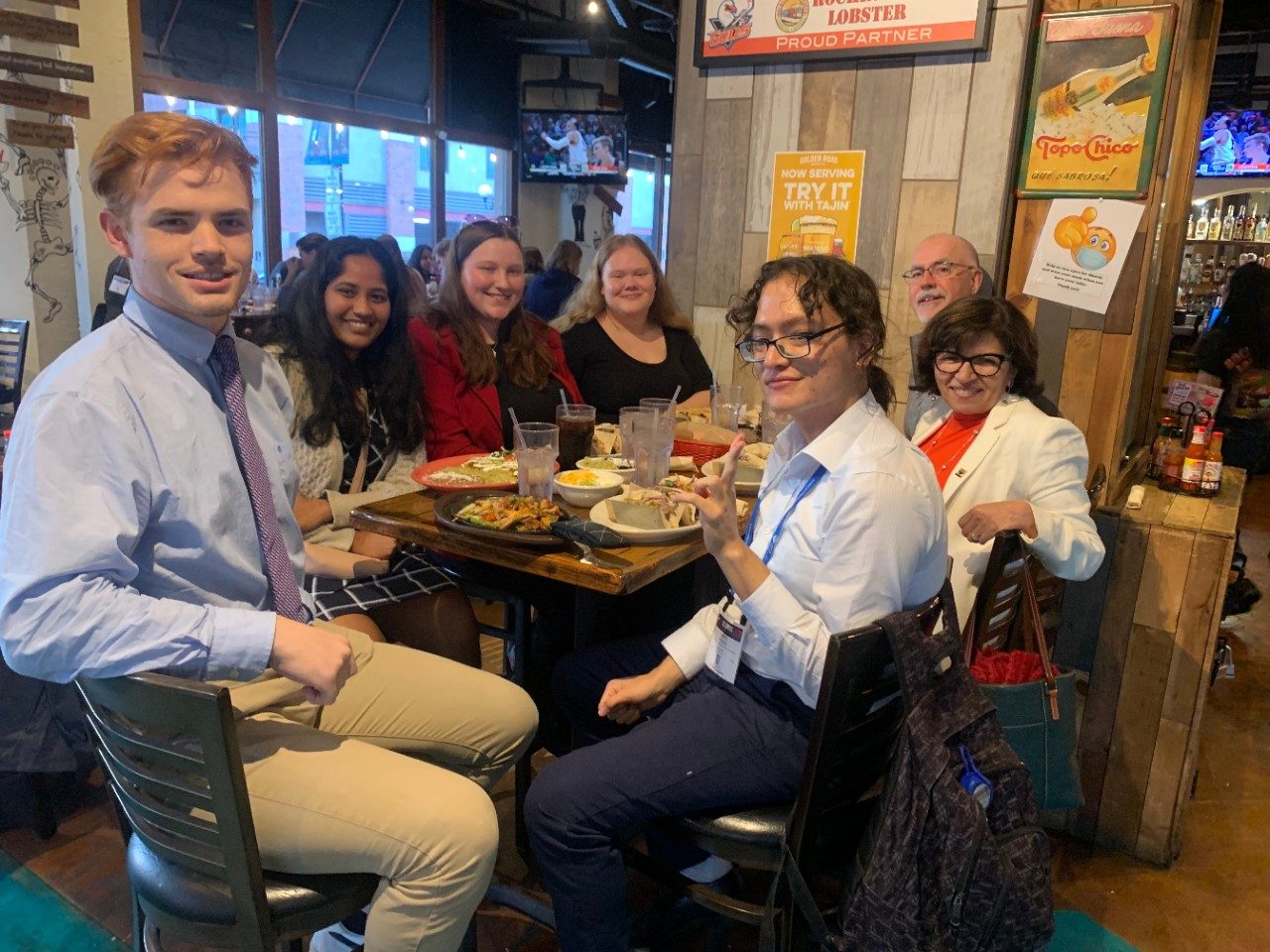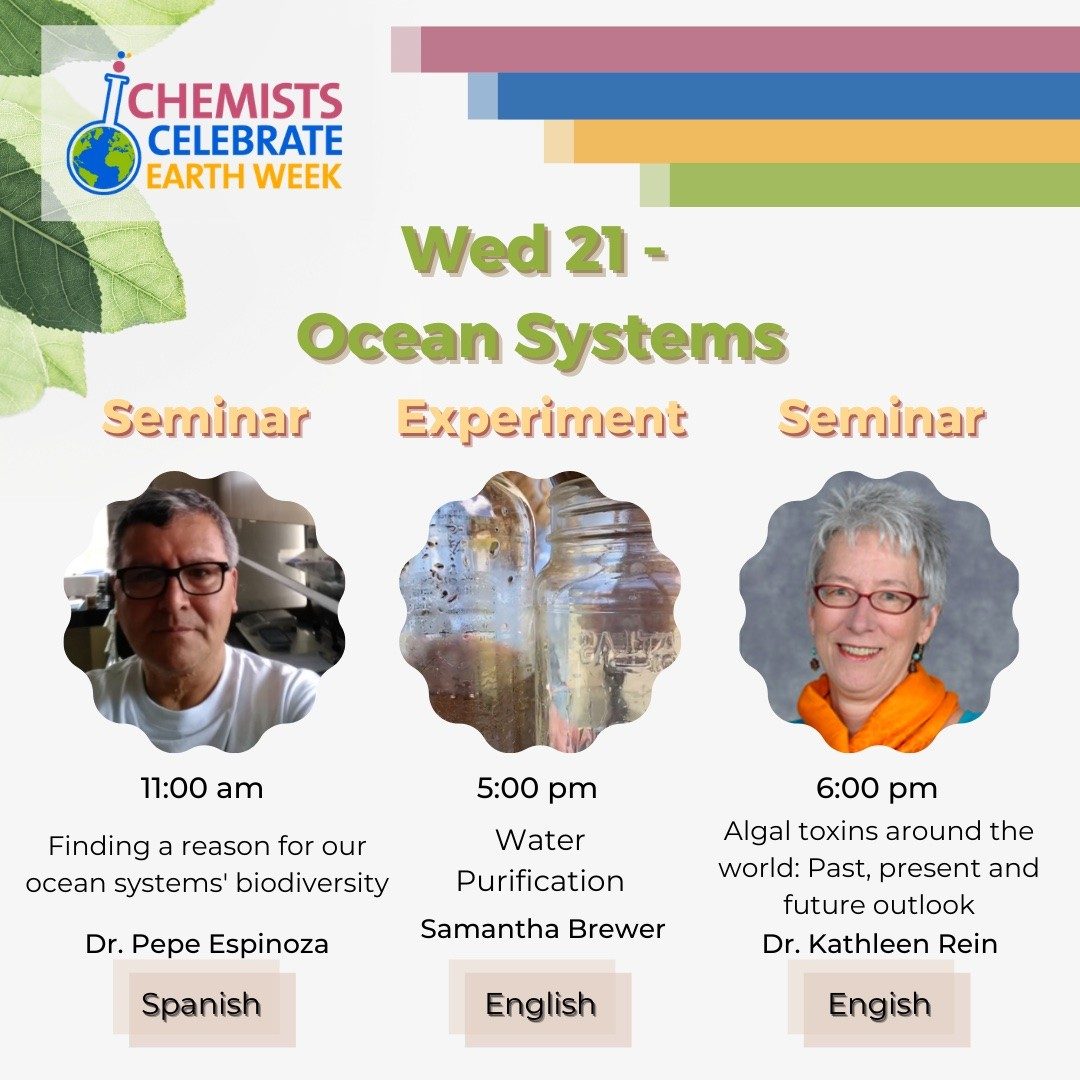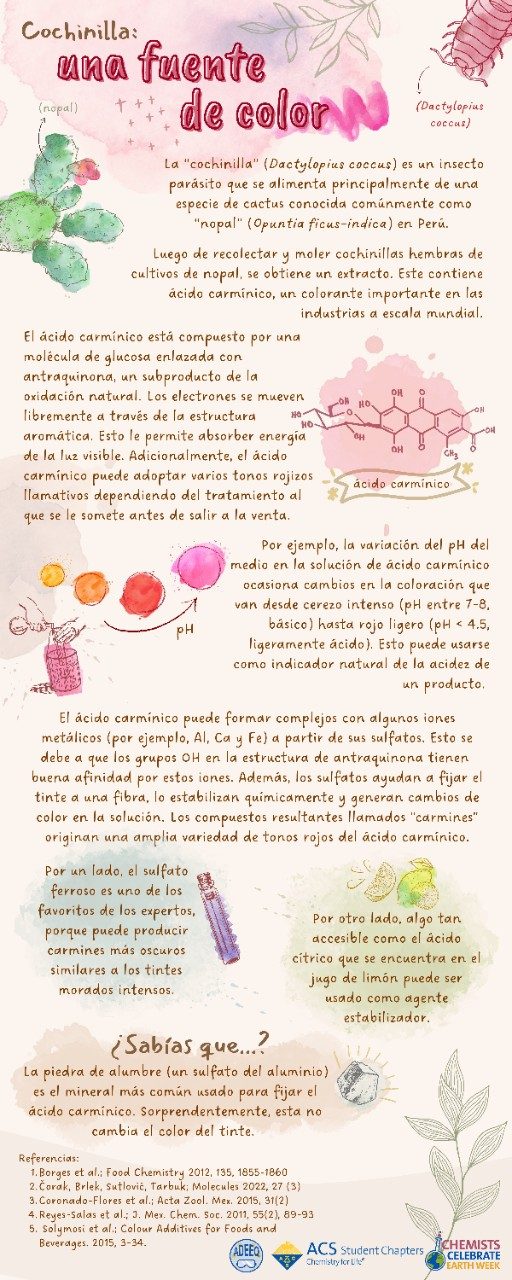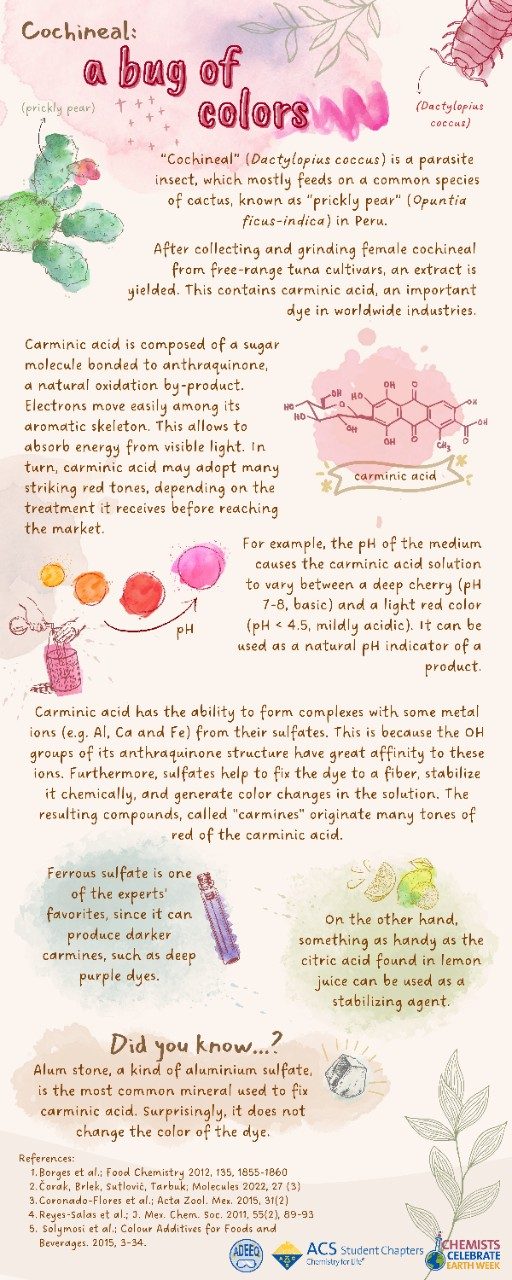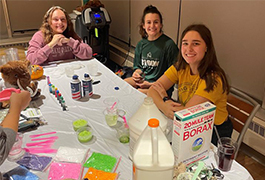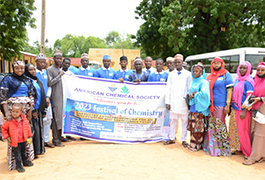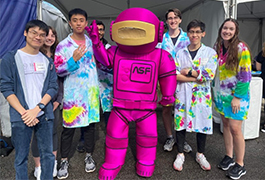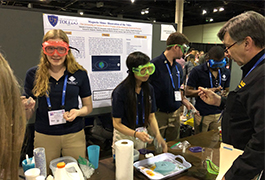Chapters in Peru and Florida Build Skills and Outreach Programs Together
In 2016, an opportunity opened up for Pontifical Catholic University of Peru (PUCP) and Florida Southern College (FSC) to establish a collaboration for student chapters to expand their outreach experiences and faculty to enhance chemistry programs. That was the beginning of a great partnership, but little did we know that four years later, COVID would force a more dynamic partnership, one that would make our connection much stronger and change the dynamic of social isolation to a heightened cross-cultural exchange of ideas as we worked toward common goals.
Before the pandemic, we were not making use of online tools, but when COVID hit, we quickly learned how to use Zoom, WhatsApp, Google Drive, Canva’s collaboration platform, and other programs that completely transformed our interactions and helped us focus our community outreach efforts on Chemists Celebrate Earth Week (CCEW).
Together, the chapters developed week-long career and outreach programs to celebrate CCEW in 2021 and 2022. In both years, chapter members invited speakers from Peru and the US to speak during the week of CCEW on topics related to the CCEW themes “Reducing our Footprint with Chemistry” and “The Buzz about Bugs: Insect Chemistry”; created an active presence in social media around CCEW by posting infographics in English and Spanish; developed virtual experiments, which also were shared with local high schools; and incentivized participation through virtual photo contests (#FSCphotoquest2022 and #PUCPphotoquest2022).
One program that came in handy was Discord and Instagram Reels to discuss the use of cochineal dye and how its colors change with different chemical reactions. (Check out the Instagram reel of the demo).
That same year, the chapters created a contest called “Insect Photoquest” that encouraged students to upload pictures they took of cool insects for a chance to earn prizes. The gift card prizes were chosen by the officers of each respective chapter, and winners in each country were announced on Instagram.
Funds for the prizes were generated from fundraisers. FSC held fundraisers for ACS study guides and goggles, while PUCP students sold lab coats and raffle tickets.
One of the most impactful aspects of this collaboration was that it gave students an opportunity to learn about other cultures. “This experience was very unique, as it was the first time I had to collaborate on a project with students from another country,” said PUCP student Sylvia Aphang Ly. “I believe it has allowed me to develop better strategies to cooperate through virtual platforms, overcoming language and other cultural barriers,” she added.
While students were learning about each other and figuring out how to work together, they ended up expanding their networks, improving their teamwork and communication skills, developing more resilience when problems arose, and becoming more nimble and flexible.
As faculty members on this project, we were extremely proud of our students’ growth and the spirit of innovation and creativity exhibited by both chapters. In addition, we believe these types of activities will better prepare our students to enter a modern workforce, which is more global and culturally diverse. “I thought the idea of doing a joint ACS activity was great,” said Linda Earlson, an FSC student. “I think as college students we definitely need more cross-cultural exposure, and this was one way it could happen.”
Aphang expressed a similar view: “Celebrating Earth Week alongside the FSC chapter made me realize that there are students across the globe that share a similar interest in promoting chemistry and science to a wider audience,” she said, adding that “adapting to changing conditions, collaborating on international events, and learning from other groups are important inputs for personal and academic growth, as communication and management skills are in increasing demand.”
One of the biggest challenges was the academic calendar. In order for this type of collaboration to be successful, it is imperative that the planning start a year in advance. “Most of our time was spent [reworking] parts of the event that did not develop according to what we had organized,” said PUCP student Adelaide Espinoza Zubiate. “We found solutions in time, but it was quite stressful since we did not foresee some of these circumstances.”
Because several of the students had jobs or other responsibilities outside school, minimizing stressors was crucial. Maintaining a Google Drive that both chapters could access helped with planning and accountability. Language was another barrier. Not all the students were fluent in English and Spanish. The first year, we realized that many of the students in the US did not participate in the CCEW seminars that were in Spanish and vice versa. We tried to address this issue the following year by using closed captioning in the Zoom sessions that could be combined with other apps (e.g., Interact-Streamer), or by using Discord to have activity channels in Spanish and English.
Moving forward, the chapters plan to continue their collaboration during either National Chemistry Week or CCEW. We also have started a Collaborative Online Instructional Learning (COIL) project in a forensic chemistry class. The COIL project gives students an opportunity to grow their literature research skills involving applications of chemistry in forensic science.
Students will be working throughout the semester in teams, and at the end of the semester they will give an oral presentation on the topic they worked on. The topics include Fingerprint Drug Analysis Using Raman Spectroscopy, The Use of MALDI-TOF-MS to Analyze Soil within Contaminated Materials, Postmortem Evaluation of Ethanol, and Related Metabolites.
Lessons learned from both experiences are informing the development of more effective collaborations in the future.
We hope that this note will inspire other chapters to seek international collaborations. We also see this as an opportunity to involve other stakeholders at ACS such as local sections, international chapters, and ACS committees to develop programs that encourage and engage the future of ACS–our students.

